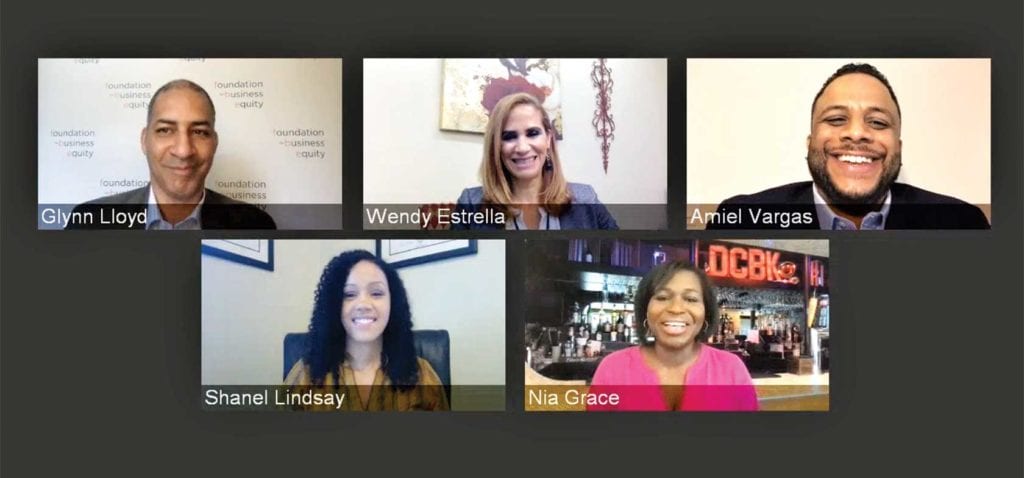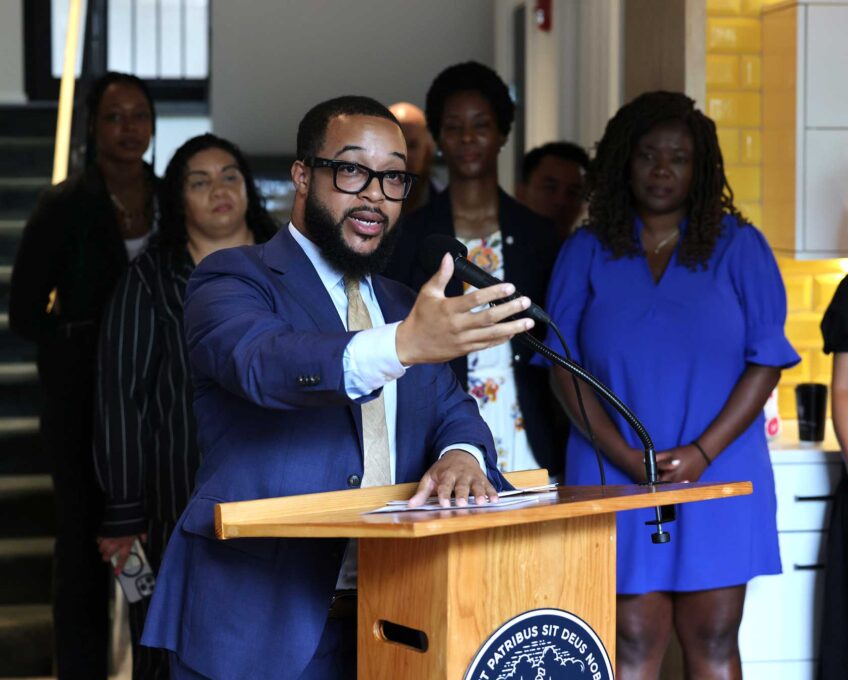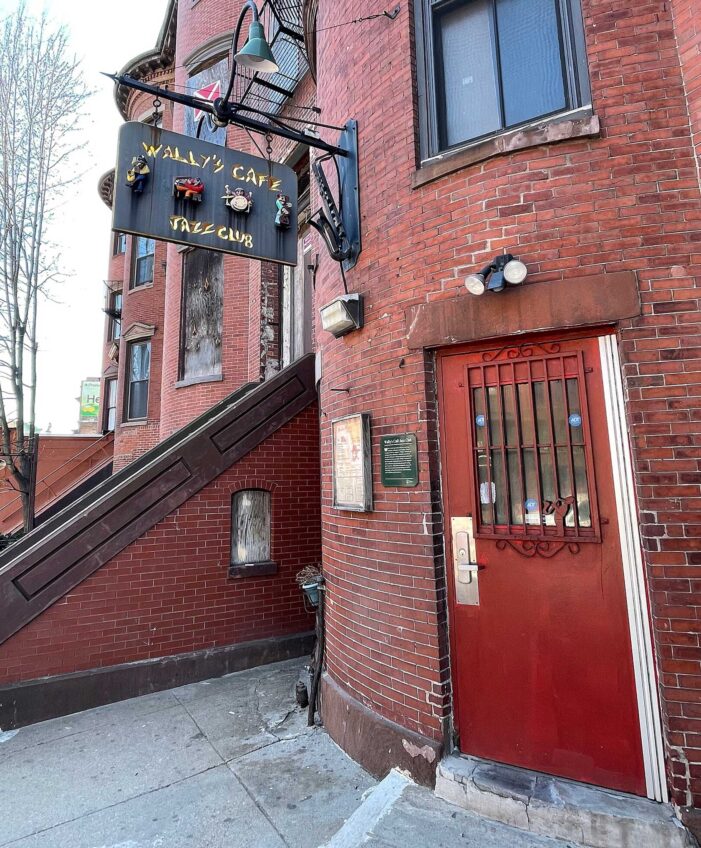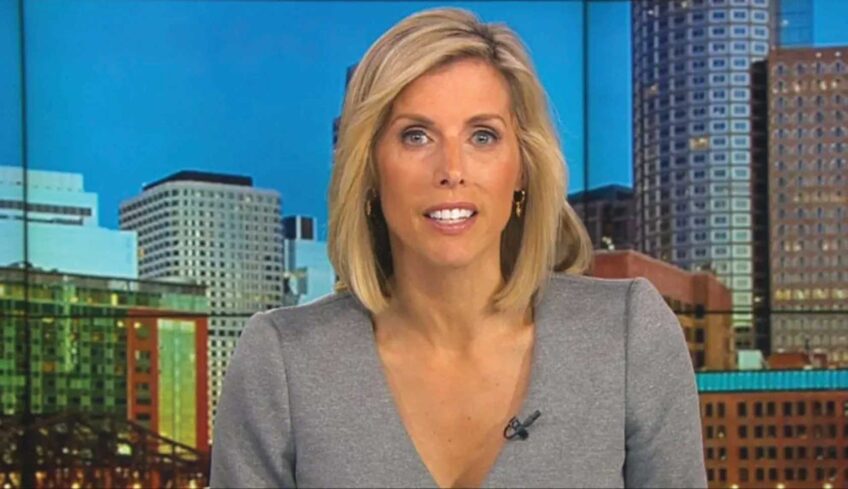Business in the time of COVID-19
Entrepreneurs share both challenges and opportunities in FBE panel discussion

For the entrepreneurs graduating from the Business Equity Initiative at the Foundation for Business Equity, COVID-19 has brought everything from major setbacks, unexpected resources, and great opportunity.
The Foundation for Business Equity is a Boston-based nonprofit working on closing the racial wealth gap by scaling Black and Latinx businesses through access to capital, strategic business advice and larger contracts.
Four recent BEI cohort graduates gathered virtually last Wednesday for an FBE panel titled “The Good, The Bad, and The Ugly: How Black and Latinx entrepreneurs are taking on one of the most turbulent economies in a century.” The panelists shared their experiences, offered advice to budding entrepreneurs, and asked for continued support. The panel was moderated by Glynn Lloyd, Executive Director of FBE.
Business owners Wendy Estrella, Amiel Vargas, Shanel Lindsay and Nia Grace brought vastly different perspectives on business in the time of COVID-19. As the owners or co-owners of a real estate holding company, a janitorial and construction staffing company, a cannabis device company and a soul food and jazz bar, each had a unique experience during the pandemic.
“COVID-19 hit as we launched our new product,” says Lindsay, owner of Ardent Life, a biotech and medical cannabis device company. “We had to double down on what worked for us before, such as e-commerce. We had to find security for our team and put on hold our plans for growth.”
And as a cannabis business owner, Lindsay did not have access to PPE funds and other supports put in place for businesses during COVID-19.
“We had to run very lean because it’s hard to build capital in the cannabis industry,” Lindsay said.
Amiel Vargas of Labor OnSite echoed Lindsay’s sentiment.
“Our best year was 2019,” Vargas said. “And we were on pace to have the best quarter ever in 2020.”
But then COVID-19 hit, and Labor OnSite saw a 65% to 70% decline in sales between March and May. Job sites shut down and janitorial staff and construction crews were forced to go on unemployment.
After Massachusetts gradually reopened, Vargas said, “It was a challenge to get workers back into the fold. “We found ourselves competing with the government for workers, since our workers were making more on unemployment. This made it attractive for workers to stay unemployed, since it was safer to stay home and get paid than go out and work and risk getting sick.”
Nia Grace, owner of Darryl’s Corner Bar and Kitchen, was also experiencing a rise in sales just as Massachusetts enforced its lockdown. The restaurant had to cancel all on-site consumption and saw a 90% loss in revenue.
On the other hand, Wendy Estrella saw COVID-19 as an opportunity for growth, which given her industry — real estate — is not all too surprising.
“Sellers became afraid of what could happen post-COVID-19,” Estrella said. “So we seized the opportunity to take our business to the next level.”
Estrella and her husband, co-owners of Estrella Enterprises, were able to grow their holding three-fold, from 100 to 300 units.
But Estrella says her company was still impacted by COVID-19.
“The moratorium given to tenants on rent affected us,” said Estrella.
Estrella also ran into a unique COVID-19 challenge when it came to building capital for her new acquisition.
“Banks were worried people wouldn’t be able to pay back loans,” said Estrella. “They required we keep a significant amount of money in escrow for at least nine months, in addition to a deposit.”
When asked what tools proved most helpful to them in running their businesses before, during and after COVID-19, the panelists agreed: organized finances and technology.
“We needed to make sure that all the pennies were accounted for, especially going into a large acquisition,” said Estrella. “We were blessed to have a strategic advisor through the BEI who was finance savvy, so that was a big part of the growth.”
“Systems and technology were very important for us,” said Nia Grace. “The technology was something we had to rely on heavily when we had to reduce staff — something as simple as bringing in UberEeats and GrubHub.”
Grace said that downsizing revealed the diverse skillsets of her team.
“They came and rallied,” said Grace.
Before opening up the panel to the audience, Glynn Lloyd asked the panelists what they needed to realize their business visions.
For Amiel Vargas, the answer was simple.
“Capital,” Vargas said. “Being able to finance our payroll. We’re definitely looking around, so if there’s any banks that want to offer their services we’d be happy to talk.”
For Shanel Lindsay, the answer lies in partnerships.
“We’re looking for local partners,” Lindsay said. “Black and Latinx business owners who make shelf-stable food to go into our edible kits.”
She added the need for cannabis advocacy in Massachusetts for Black and Brown communities.
“This industry was built on the backs of Black and brown people,” she said. “This is a huge opportunity for generational wealth. Business owners have some of the strongest footing to say, ‘Hey, Boston is inequitable, we need to do something.’”






